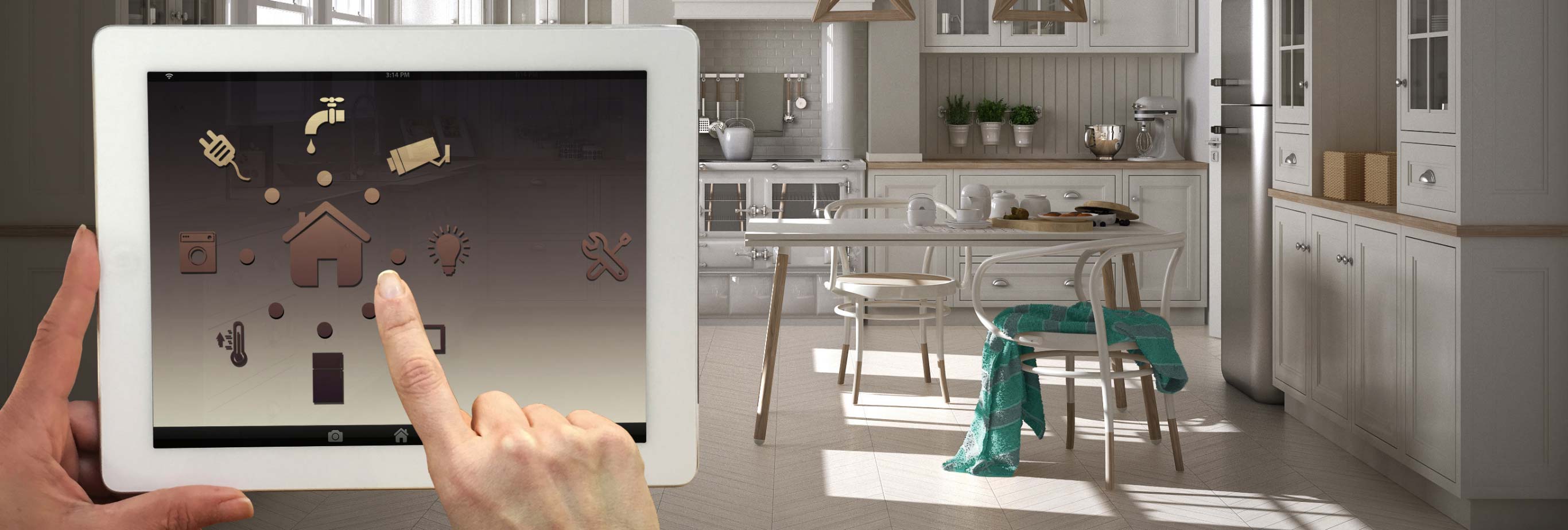Condo Insurance
Condo insurance provides protection for your individual unit, like homeowners insurance, but specifically tailored for condominium living. Typically, your condo association maintains a master policy that covers shared areas and the building’s exterior. Your individual condo insurance policy fills the gaps, covering areas inside your unit that the master policy doesn’t, including upgrades you’ve made.
Condo coverage extends to damages to your unit’s interior, including countertops, cabinets, flooring and your personal belongings. Additionally, insurance for a condo includes personal liability protection and coverage for temporary living expenses if your condo becomes uninhabitable due to a covered loss.
Tailor your condo insurance coverage
At Amica, our approach to condo insurance ensures you secure the right level of protection.
Dwelling
Dwelling coverage typically protects items attached to your unit like cabinets, light fixtures and appliances, as well as any improvements you've made, such as upgrading the material of your countertops.
Example: Your condo has a small kitchen fire that damages the stove, cabinets and countertops. Most likely, repairs for these areas will be covered by your condo policy.
It's worth noting that your insurance for a condo may include coverage for loss assessments, which are charges made to all of the unit owners in your complex by your condo association for damage to common areas from a covered loss.
Personal property
This coverage protects your belongings from damage or loss due to risks such as fire, theft and vandalism. This coverage generally applies to items like clothing, electronics, furniture and personal valuables.
Example: If fire damage affects your belongings, personal property coverage can help pay for costs to clean or replace your items.
Loss of use
If you’re unable to live in your condo due to a covered loss, condominium insurance coverage helps with the additional living expenses incurred while your unit is being repaired or rebuilt.
Example: You’re unable to use your kitchen because of water damage. Loss of use will cover additional food expenses while your kitchen is being repaired.
Liability
This coverage provides protection for property damage or bodily injury claims made against you or a household member. Condominium insurance coverage may also extend to cover legal costs if you’re sued.
Example: If your guest sustains a serious injury inside your condo and files a lawsuit against you for damages, liability coverage would help pay for legal fees.
Condo insurance discounts and savings
Amica offers a variety of condo insurance discounts, allowing you to customize your coverage to fit your needs and budget.
Why choose Amica?
The Amica experience means you'll be provided with reliable condominium insurance coverage built on transparency, integrity and dependability, all backed by our award-winning claims and customer service teams. With over a century of financial stability, we offer peace of mind, assuring policyholders that we’re a firmly established and trustworthy insurance provider.
Exceptional value
We prioritize your needs, offering comprehensive insurance solutions that balance coverage with cost savings. Our discounts and rewards programs are designed to provide you with the best value for your condo.
Quality service
Our customer service is prompt and personalized, offering empathy at every interaction. From paying your premium to handling policy inquiries, our dedicated team is always here to help.
Reliable protection
With Amica, you benefit from industry-leading claims resolution with minimal disruption. The Amica mobile app allows for a straightforward insurance experience, making policy and claims management easy.
FAQs about condo insurance
Comparable to homeowners insurance, condo insurance covers the interior of your unit, your belongings, liability and temporary living expenses. However, it differs in that it doesn’t cover damage to the outside of your building, such as exterior walls and roofs. Additionally, condo insurance may not provide liability protection for injuries occurring in shared spaces, like hallways and parking lots.
Your homeowner’s associations (HOA) master policy won’t cover personal property or liability for losses inside your unit; it generally covers the building's exterior and common areas. Condo insurance fills the gap, protecting your unit’s interior and your personal belongings. Also, condo insurance is often required by lenders or homeowners associations.
Review your HOA’s master policy to determine your required dwelling coverage. The type of master policy — either “all-in” or “bare walls” — will impact the amount of coverage you need. For example, if the master policy is “all-in,” it likely covers walls, ceilings, floors, cabinetry and lighting, so you may need less dwelling coverage.
Your personal property coverage needs are based on the value of your belongings. Start by taking inventory of your possessions room by room to determine how much protection you require.
Your liability coverage may be dependent on the guidelines set by your HOA, but minimum coverage typically starts at $100,000.
Typically, you can get condo insurance for less than $40 a month.4 Like other insurance, the cost of your condo insurance depends on factors like your location, deductible and coverages you need.
Insights and guidance for condo owners
Customer service that earns loyalty
Excellent mutual insurance is built on lasting relationships with each policyholder. At Amica, our customers are our best advocates. Hear more about the Amica experience directly from them.
1 Discounts not available in all states and may vary.
2 Dividend policies are not available in every state, may not be available on all policy types, and are not guaranteed. To be eligible to receive a declared dividend, you must be a policyholder when, and if, dividends are declared. Should your policy cancel or terminate for any reason before the end of its full term, you would not be eligible for a declared dividend payment.
3 Discounts vary and are typically greater when your device is monitored by a third-party service.
AMIC-02-092524





